‘Left to suffer’: Kenyan villagers take on Bamburi Cement over assaults, dog attacks
Editor's note: Read the petition here.
Their hopes for justice seemed to be slipping away after initially taking on a multinational corporation and failing to hold it accountable for the brutal injuries they suffered.
The death of one of their own cast a shadow of despair, making it seem unlikely that they would ever bring the corporation to justice for the crimes they alleged.
However, 11 victims of dog attacks, assaults, and other severe human rights violations are now challenging Bamburi Cement PLC’s role in these abuses in court.
They are represented by the Kenya Human Rights Commission (KHRC), which on January 29, 2025, filed a legal claim before a constitutional court in Kenya, seeking to hold the multinational accountable for the harm suffered by the victims—residents of land parcels in Kwale that Bamburi claims ownership of. KHRC worked with the Kwale Mining Alliance (KMA) to bring this case.
The victims, aged between 24 and 60, include Mohamed Salim Mwakongoa, Ali Said, Abdalla Suleiman, Hamadi Jumadari, Abdalla Mohammed, and Omari Mbwana Bahakanda. Others are Shee Said Mbimbi, Omar Mohamed, Omar Ali Kalendi (deceased), Abdalla Jumadari, and Bakari Nuri Kassim.
Bamburi had hired a private security firm and deployed General Service Unit (GSU) officers to guard three adjoining land parcels, covering approximately 1,400 acres in Denyenye, Kwale. The GSU established a camp on the land, which has historically been accessed by residents who have long used established routes to reach the forest and the Indian Ocean.
For decades, these routes provided them with access to resources such as firewood, crops, and fish, which they relied on for their livelihoods. However, five years ago, when they attempted to collect firewood, harvest crops, and access the ocean through the land, Bamburi accused them of trespassing. The company’s private guards and GSU officers responded with force, setting dogs on them and assaulting them.
Many were severely injured and hospitalized following brutal attacks, unlawful detention, and physical assault by Bamburi’s security personnel. These incidents occurred despite the lack of clearly defined boundaries and the fact that the traditional access routes had never been contested.
According to the petition, GSU officers and private guards inflicted serious injuries by kicking, punching, and beating the victims with batons. Those who were arrested were neither taken to a police station nor charged with any offense. Despite their injuries, they were denied emergency medical care.
These actions were intended to intimidate residents, prevent them from accessing the beach, and suppress any historical claims to the land, the victims tell the court. Local police in Kwale failed to investigate the abuses, visit the crime scenes, or arrest any of the perpetrators, they add.
Now, the victims are seeking compensation for these violations. They have also asked the court to declare that their rights were violated through torture inflicted by Bamburi’s guards and GSU officers. Additionally, they want the court to rule that releasing guard dogs to attack them during arrests constituted an extreme and unlawful use of force.
KHRC at 30: A celebration and challenge
Editor's note: The Star newspaper first published this opinion article here.
Also, watch the anniversary dinner here.
Today marks 30 years since the Kenya Human Rights Commission was registered in Kenya. Its radical and progressive founders— Maina Kiai, Makau Mutua, Willy Mutunga and Peter Kareithi—risked everything to challenge a brutal one-party state when they set up the organisation in the US in 1992.
Operating initially from Washington, DC, the founders built a human rights movement that dared to envision a Kenya free of oppression.
This happened in the shadows of dictator Daniel Moi’s authoritarian regime, where dissent was met with brutal force, including political assassination and detention without trial.
KHRC founders hoped to challenge Moi’s regime and deliver civic freedoms through collaboration and partnership with progressive actors, but they met suppression.
However, this did not stop the organisation and its founders from pushing for landmark advocacy that secured reparations for Mau Mau veterans.
Over the years, KHRC has worked with partners to dismantle the culture of impunity, most notably through its work on transitional justice for victims of Nyayo House torture and its daring exposés of state-sponsored violence.
Its campaigns for workers’ rights, corporate accountability and electoral justice touched the hearts and souls of many Kenyans.
Yet, even as KHRC marks three decades of human rights work in Kenya and beyond, the same challenges we faced in the 1990s are present today.
The current regime is a classic case study of why the war for a society free from oppression has yet to be won.
Bodies are turning up in quarries. Our young brothers and sisters are getting executed in cold blood for agitating for good governance and showing political dissent. Our pockets are emptier than we could ever imagine.
Our civic space is shrinking. State surveillance, arbitrary crackdowns and vilifi cation of NGOs as ‘foreign agents’ are everyday battles.
These realities demand recalibration. Public disillusionment with democratic gains has fed a narrative that human rights advocacy is elitist and out of touch—a dangerous misconception in a nation where systemic inequality persists.
KHRC’s survival and relevance hinge on its ability to confront these perceptions and the growing oppression.
As such, KHRC at 30 is a celebration and a challenge—a celebration of the battles we won and a challenge to cement these victories and win the war because justice is achieved only through determination.
The past three decades have shown what is possible when courage, strategy and solidarity converge.
However, the forces of oppression are ruthless and evolve in form and strategy. Therefore, KHRC must adapt and deepen its grassroots work.
Marginalised communities should not just be beneficiaries but partners in pushing for change. From Kibera’s informal settlements to remote rural outposts, KHRC must continue strengthening the voices of those whose realities it seeks to transform.
As the world changes, so must KHRC. The digital age presents both opportunities and threats. State sponsored disinformation campaigns, cyber surveillance and online harassment are modern-day tools of oppression.
To stay ahead, KHRC must double down on its digital rights advocacy, protecting online freedoms and ensuring technology remains a force for good. Crucially, KHRC must invest in the next generation.
With Kenya’s median age at 19, the youth are not just the future but the present. KHRC must engage this demographic.
It will bridge the gap between the promises of the 2010 Constitution and the frustrations of lived realities to nurture a new cadre of human rights defenders.
With all this, it should not be lost that KHRC was born out of a transformative and radical political culture. Our work is political because we confront power. We are not going anywhere because we are permanent, irreversible and irrevocable.
That is why KHRC is dedicating the coming years to being of rights and fights, just as our legacy book, which we will launch today, summarises.
Ernest Cornel leads communications work at KHRC
KHRC, LSK sue to block Adani’s 30-year JKIA lease
Editor's note: Read the petition here.
The Kenya Human Rights Commission (KHRC) and Law Society of Kenya (LSK) have moved to court to block the controversial takeover of Jomo Kenyatta International Airport (JKIA) by India's Adani Enterprises.
The privatization deal, which would grant Adani control of the airport for 30 years, has ignited widespread public outrage over its secrecy and potential consequences.
Opposition to the agreement has intensified, with airport workers protesting and demanding the plan be scrapped.
But the government appears determined to push the deal forward.
Adani has pledged a Sh238 billion investment to "upgrade and expand" the airport, but the petition says Kenya can raise the necessary funds independently, without handing over control of a key national asset.
“The Adani proposal is unaffordable, threatens job losses, has a disproportionate aggregated fiscal risk exposure to the public, and offers no value for money to the taxpayer,” KHRC executive director Davis Malombe stated in court filings.
KHRC and LSK sent letters to JKIA in July and August 2024 seeking details on the opaque contract.
Despite rising public demand for transparency, the government has continued to withhold information about the deal.
The legal challenge asserts that leasing a strategic and profitable national airport to a private entity is irrational.
“It violates the principles of good governance, accountability, transparency, and prudent and responsible use of public money under Articles 10 and 201,” the petitioners say.
Controversy also surrounds the timeline of the deal.
According to the petition, Adani submitted its proposal on March 1, 2024, yet the government only approved the relevant aviation policies in June—three months later.
“The timing points to a possible collusion between the respondents to tip off and give Adani a head start on the planned expansion of JKIA, contrary to Article 10 on good governance,” the petition says.
The terms of the deal have sparked further outrage.
After the 30-year lease period, Adani would retain an 18 percent equity stake in JKIA's aeronautical business indefinitely, entitling the company to a concession fee starting at Sh6 billion, with a 10 percent increase every five years.
The petition argues that this arrangement violates Article 201(c) of the Constitution, which mandates that the benefits and burdens of resource use must be shared equitably across generations.
Adani’s corporate track record is also under scrutiny.
The company has been embroiled in numerous corruption and human rights investigations worldwide. In 2011, the Parliamentary Ombudsman in the Indian state of Karnataka investigated Adani for its role in the illegal export of millions of tons of iron ore.
Why KHRC, Gikonyo seek to nullify Ruto's cabinet appointments
Editor's note: Read the case here.
KHRC and Wanjiru Gikonyo contested the appointment of 19 cabinet secretaries, citing that MPs did not adequately consider public input.
They also filed the lawsuit because one nominee, Wycliffe Oparanya, had been implicated by the Ethics and Anti-Corruption Commission (EACC) in graft scandals.
KHRC and Gikonyo are seeking to nullify the appointments of the 19 CSs.
On July 12, President William Ruto dissolved his first cabinet amid growing pressure from young Kenyans, who had been protesting his administration's corruption, nepotism, and abuse of power.
Ruto subsequently nominated 20 individuals, including 10 from his initial cabinet, which further fueled public rage.
When the vetting began on August 1, the Parliamentary Committee on Appointments failed to transparently disclose the criteria for candidate selection.
Concerns were raised about the integrity of several nominees, and the approval of the 21 CSs was conducted in secrecy.
MPs did not thoroughly examine all relevant aspects of the nominees' backgrounds, qualifications, and suitability for their roles.
This resulted in appointing individuals not subjected to comprehensive financial scrutiny and whose ethical conduct and integrity were not adequately evaluated.
A report on the nominees' vetting revealed that Kenyans submitted 813 memoranda questioning the nominees' suitability.
However, MPs dismissed 656 of these petitions, citing that they were not submitted under oath.
Media reports indicate that the National Assembly received slightly more than 1,300 affidavits, of which only 187 supported Ruto's new cabinet nominees.
This suggests that MPs prioritized procedural technicalities over substantive concerns.
Still, the executive did not give the public sufficient time to review the vetting report, as the CSs were sworn in less than 24 hours after being approved by MPs.
The petition argues that the nomination, vetting, and appointment processes failed to meet the required legal and constitutional standards.
Since these processes lack transparency, fail to ensure adequate public participation, or disregard essential legal and ethical requirements, they fall short of the law and the Constitution.
Survivors of Nyayo House torture seek monument status for infamous chambers
Editor's note: Read the petition here.
Survivors and victims of torture who were brutalized or killed by police officers at the infamous Nyayo House torture chambers in Nairobi have sued the Kenyan government.
They want the chambers converted into a national monument for posterity.
By filing this suit, the survivors and victims challenged Legal Notice Number 11 of 1991, which declared the Nyayo House torture chambers a protected area, restricting public access.
This declaration contradicts the recommendation of the Truth, Justice, and Reconciliation Commission (TJRC), which, 13 years ago, said that the chambers should be open to the public.
The recommendation had a one-year implementation timeframe, which has not been met.
If the court rules in favor of the suit, the chambers will be accessible to the public for remembrance and education about Kenya's history at the former torture facility.
The suit was filed by the Kenya Human Rights Commission (KHRC), the Law Society of Kenya (LSK), and four survivors of Nyayo House torture—Wachira Waheire, Florence Murage, Joseph Manje, and Ngotho Kariuki—on behalf of other detainees.
The Attorney-General and the Cabinet Secretaries for Interior and Tourism have been named defendants.
Cover-up attempts
Despite the chambers being opened to the public for the first time on February 18, 2003, after the end of former dictator Daniel Arap Moi's regime, subsequent efforts to make them continuously accessible have not been successful.
Access to the chambers requires permission from the Nairobi county commissioner and the National Intelligence Service (NIS).
The legal notice, issued by former Minister for State Jackson Angaine on February 1, 1991, aimed to justify and conceal the illegal detention and torture of many innocent Kenyans during Moi's autocratic regime.
Police officers from the Special Branch tortured political dissidents for days to suppress their calls for democracy.
Floors 24, 25, and 26 of Nyayo House were interrogation rooms, while the basement contained "dark, dingy, and often waterlogged cells." Detainees were subjected to severe physical, mental, and psychological torture to extract forced confessions.
The petition notes there were attempts to destroy the torture chambers to cover up the atrocities committed there.
"Without an expedited process, Waheire, Murage, Manje, Kariuki, and other victims or survivors of the Nyayo Torture Chambers will continue to be deprived of their rights to reparation and restorative justice," the petition states.
Judge Lawrence Mugambi has scheduled a hearing for September 23, 2024, to provide further directions on the case.
The petitioners believe that the rule of law remains the backbone of the 2010 constitution, a principle fervently sought by Kenyans.
The journey towards this constitution would be incomplete without acknowledging the injustices faced by Kenyans across various epochs.
These include the subjugation by colonial masters and the early days of the republic under autocratic and despotic rule, during which hundreds of survivors and victims of torture were brutalized and killed by police officers at the Nyayo House torture chambers.
Kenyan government officials sued over fatal flooding
KHRC has filed a lawsuit against multiple government figures and entities for negligence during the recent floods that ravaged homes, displaced hundreds of thousands, and tragically claimed hundreds of lives nationwide.
They are also facing scrutiny for conducting evictions in the Mukuru Kwa Reuben and Kwa Njenga slums during floods, which caused more harm to an already vulnerable situation.
KHRC is demanding compensation for flood victims.
According to suit papers, intense heavy rainfall, which began in March 2024, struck Kenya, with the government failing to implement a timely national response plan.
This negligence persisted despite a warning from the Kenya Meteorological Department on July 30, 2023, regarding the intensification of the country’s rainy season due to the El Niño weather pattern.
In the petition filed on May 16, KHRC said the government violated citizens’ constitutional rights by failing to protect them from the devastating floods.
Cabinet Secretaries Kindiki Kithure (Interior), Soipan Tuya (Environment), and Alice Wahome (Lands) are among those sued.
Institutions targeted in the legal action include the Water Resources Authority, the National Environment Management Authority, the Council of Governors, the National Disaster Management Authority, and Kenya Railways.
The Attorney-General, Justine Muturi, is also implicated in the case.
KHRC requested the court to prioritize the case, and a ruling is pending.
KHRC urged the court to compel the government to provide humanitarian assistance, including alternative accommodation, food, and social amenities, to people affected by floods before the case is heard and determined.
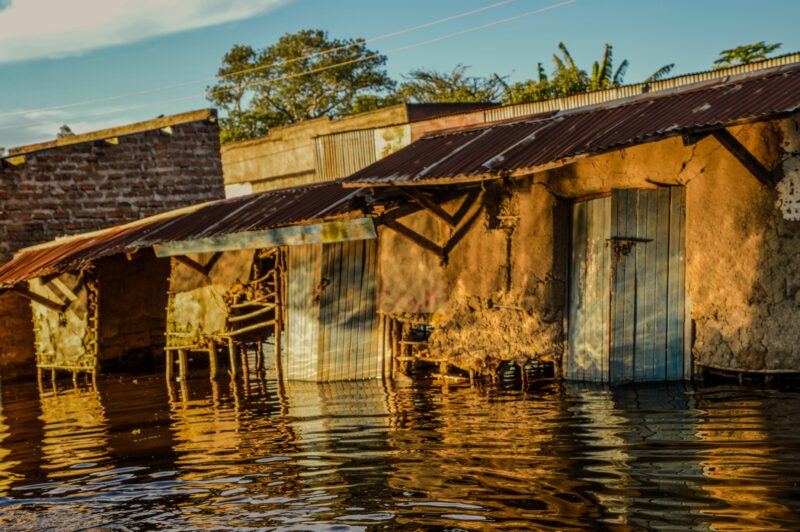
Interior CS Kindiki's announcement about the precarious state of 178 dams and reservoirs prompted KHRC to seek a court order compelling the Water Resource Authority to submit a detailed report on all dams and water extractions. This report should include permit information, last inspection dates, and safety statuses, KHRC said.
Additionally, KHRC sought an order against county governments, demanding the submission and scrutiny of their disaster preparedness plans and implementation reports.
Read the petition here.
Koome sued for threatening striking medics with violence
Editor's note: Read the petition here.
Nine civil society organizations have sued Inspector-General of Police Japhet Koome for curtailing the rights of doctors to strike, assemble, protest and picket.
Koome has been personally sued, meaning the National Police Service (NPS) will not provide legal coverage for him. Any court orders issued will directly target Koome rather than the Service.
On April 14, 2024, Koome said police under his command would “deal decisively and firmly” with the striking and picketing medics.
The nine organizations wrote to Koome, demanding he retract his threats and apologize, but he refused, necessitating the case.
“Applicants fear that this directive requires police officers to forcefully disperse peaceful and unarmed protests by the medics,” the suit says.
Doctors have been on strike since March 13, 2024, demanding improvements in the country's healthcare system, including hiring trainee doctors, better working conditions, and equal pay for equal work.
But the government, doctors said, refused to come to the negotiating table after it reduced the pay of medical interns by 77 per cent to Sh47,000.
The government has insisted that talks can only resume if doctors end their strike, a condition that the medics find dishonest. They have planned multiple protests to pressure the government to address their grievances, citing their constitutional right.
In the lawsuit, the organizations seek to hold Koome accountable for any harm inflicted by police officers under his command on protesting doctors. They argue that Koome's directive endangers the rights and lives of medics by potentially motivating police officers to use force to enforce his order.
They also want all police officers restrained from enforcing Koome’s illegal order.
The groups’ fears of police violence against medics are justified. For instance, on February 29, 2024, at Afya Center, police fired at Kenya Medical Practitioners, Pharmacists and Dentists’ Union (KMPDU) secretary-general Dr Davji Atela during a peaceful protest, injuring his head.
Consequently, the CSOs also want the court to compel Koome to pay Atela, from his personal funds, “compensation in the form of general damages for violating his rights while using unlawful force”.
The organizations involved in the lawsuit against Koome are KHRC, Katiba Institute, ICJ Kenya, and Transparency International Kenya. Others are TISA, AFRICOG, Siasa Place, Tribless Youth and MUHURI. Law Society of Kenya (LSK), KMPDU, and Kenya Union of Clinical Officers (KUCO) are interested parties.
Why KHRC, Katiba Institute sued to stop new housing levy
The Kenya Human Rights Commission (KHRC) and Katiba Institute, on April 11, 2024, filed a case to halt unlawful housing levy deductions towards the so-called "affordable housing project".
Kenyan MPs had, on February 21, 2024, approved the Affordable Housing Act of 2024, which allowed the government to deduct 1.5 per cent of employees' monthly gross salary and similar amounts from employers for the houses, a project marred by controversies and coercion.
However, unlike MPs, the Senators didn't give people enough chance to share their opinions before this law was passed.
The lawsuit argues that because people weren't given adequate say in the Senate in making this law, it goes against the Constitution. So, the law itself is unconstitutional.
President William Ruto approved the law on March 19, 2024, despite this.
How it started
This legal action began because of a law passed in 2023 called the Finance Act. This law made workers and their bosses pay a housing levy even if they weren't guaranteed a house.
Civil society groups, including KHRC, went to court to challenge how this law was made and how the housing levy was collected.
On November 28, 2023, the court ruled that the housing levy was unfair and against the Constitution because only formal workers had to pay, leaving out informal workers.
In response, MPs quickly passed a new law in 2024, the Affordable Housing Act, to fix the problems with the 2023 law and keep collecting the housing levy.
Current situation
The new law still doesn't say how unemployed people should pay the housing levy. It only says that formal workers must pay, leaving out informal workers.
Treating people differently like this is seen as unfair and goes against the Constitution, according to the legal action.
Despite being called "affordable housing," the law doesn't really make housing cheaper. It helps wealthy people buy houses while forcing poor people to pay for them, even though they might remain homeless.
Apart from seeking to stop more housing levy deductions, KHRC and Katiba Institute want the court to compel the government to give back the money they already took from employers and employees.
Read the petition here.
'Return our ancestral land'
For decades, Kakuzi PLC's iron fist has been crushing the hopes of generations fighting for their birthright—land.
Kakuzi is a multinational conglomerate specializing in agricultural produce and controls 32,900 acres of land in Murang'a, a county 65 kilometers northeast of Nairobi.
Organized communities determined to end historical injustices are challenging Kakuzi’s hold over this vast land.
The National Lands Commission’s (NLC) factfinding mission on March 14, 2024, brought these communities’ sheer courage to the fore.
With a wealth of historical evidence supporting their claim to the land, the communities provided testimonies detailing the brutal displacement they endured from their ancestral homes, orchestrated over the years under cover of darkness by guards employed by Kakuzi.
NLC toured the scenes of these historical human rights violations and interviewed victims.
On September 28, 2018, NLC convened its inaugural public hearing in Thika, prompted by petitions from locals seeking a return to their ancestral land. The Ndula Resource Center and the Kenya Human Rights Commission (KHRC) represented the communities. During the meeting, NLC was implored to visit the extensive land under Kakuzi's control. However, this visit never materialized.
Five years and five months later, in February 2024, another hearing took place in Nairobi, with more petitions from locals urging NLC to act fast and end years of landlessness. Finally, the visit took place on March 14.
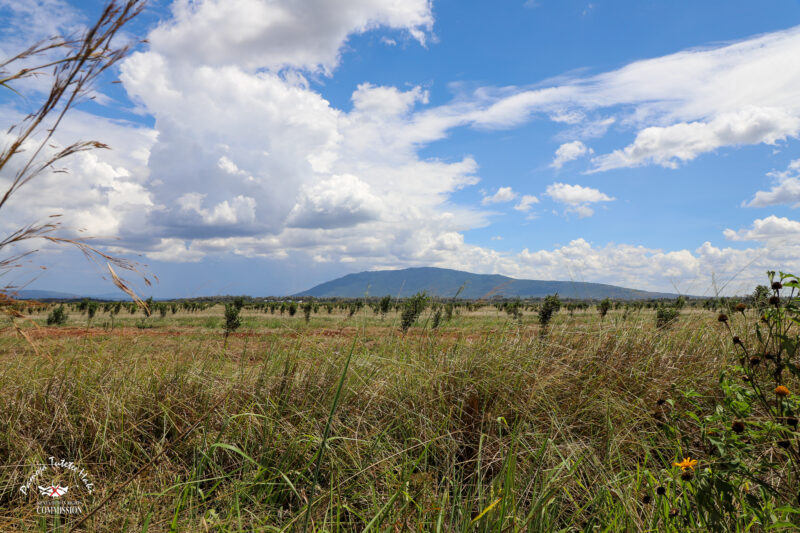
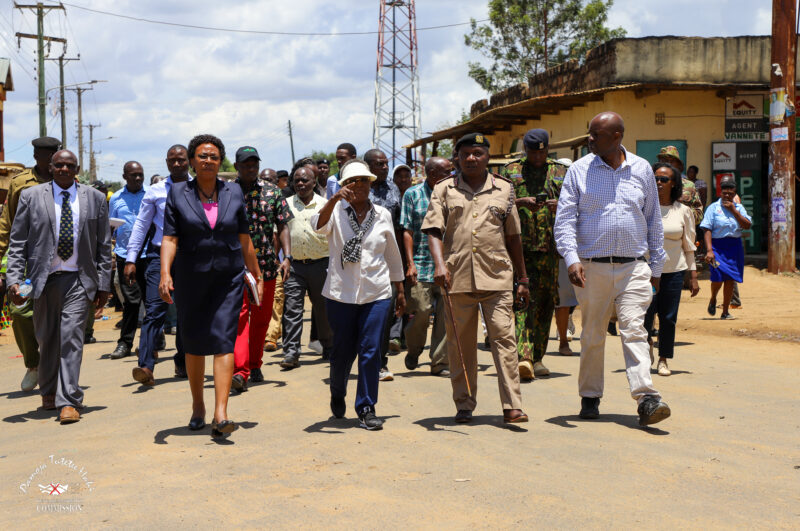
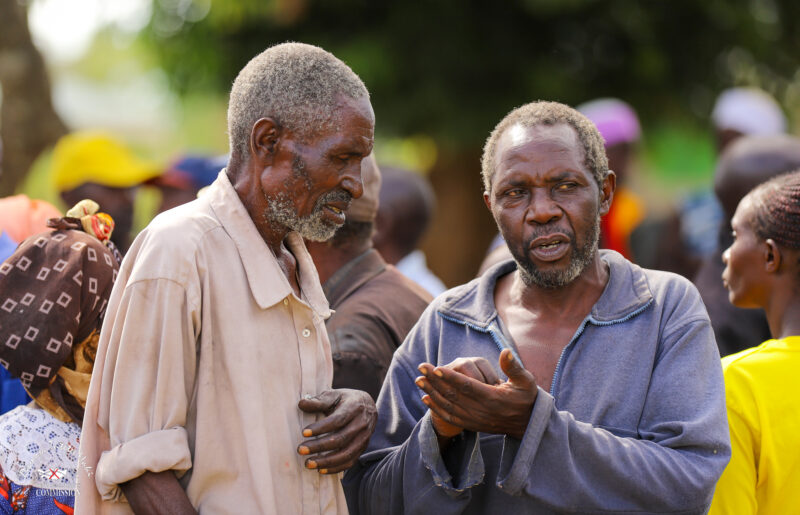
How it started
Between 1902 and 1966, Kakuzi—formerly known as Kakuzi Fibreland Limited—amassed extensive land holdings acquired from former British settlers in Kenya. These settlers had obtained land primarily through legal mechanisms and forceful dispossession during the colonial era.
The British colonial government implemented laws such as the Crown Lands Ordinance of 1902 and the Crown Lands Ordinance of 1915, which allowed for the alienation of vast tracts of fertile land from indigenous communities to European settlers.
Additionally, the British employed tactics such as coercion, fraud, and violent displacement to seize land from local communities, exacerbating the injustice and dispossession experienced by the Kenyan people.
This is the backdrop against which Kakuzi came to possess extensive land holdings in Murang'a. This action left the local population stranded in squatter camps within Kakuzi's territory, with many compelled to toil on its sisal plantations under conditions reminiscent of slavery.
In the early 1960s, Kakuzi relinquished the parcels to the Kenyan government and secured a 999-year lease in 1966. However, these communities were not resettled on their land. Today, descendants of the original farming communities rely on waged labor on Kakuzi farms and endure harsh living conditions.
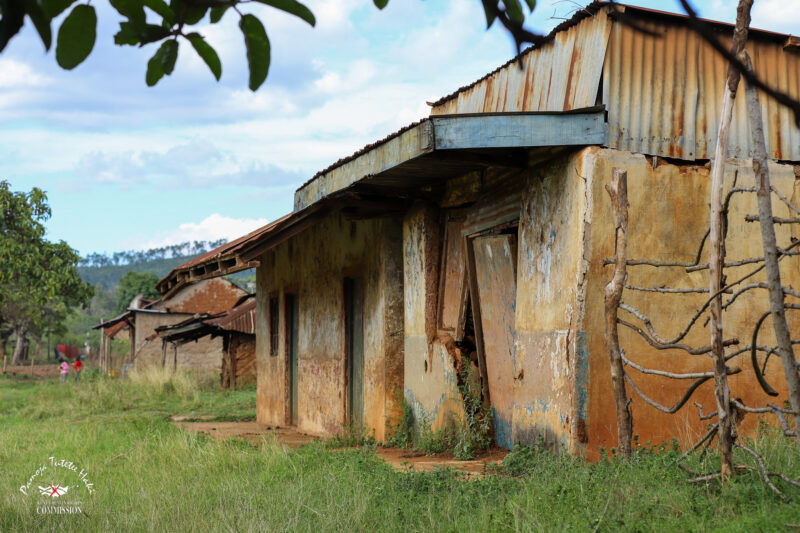
Over the years, communities living on and adjacent to the Kakuzi estate have faced a myriad of serious human rights abuses, including alleged killings, assaults and rapes by Kakuzi guards. In June 2019, some 85 claimants moved to the British courts to sue Kakuzi's parent company, Camellia PLC, based in the UK, for these violations. UK-based law firm Leigh Day, working closely with KHRC and Ndula Resource Centre represented them.
In the wake of this legal proceeding and subsequent revelations of alleged sexual violence by Kakuzi guards, UK supermarket chains Tesco, Lidl, and Sainsbury's suspended their contracts with Kakuzi.
Kakuzi's Makuyu avocado plantation had its Rainforest Alliance certification revoked, preventing the company from exporting its produce. As a result, according to its financial reports, the company experienced a significant setback in its multimillion profits, which plummeted by 52.88 per cent to Sh137.2 million.
Consequently, Camellia PLC reached an out-of-court settlement with the claimants, paying Sh696 million to victims of alleged violence and rape, alongside making remedial investments in the local Murang'a community. Kakuzi committed to establishing and executing an operational-level grievance mechanism to facilitate the fair and prompt resolution of any other allegations of human rights abuses.
Back to factfinding
Yet, one challenge persisted: access to ancestral land, which Kakuzi has adamantly refused to surrender, perpetuating entrenched historical injustices connected to colonization and economic exploitation.
This is the reason behind NLC conducting hearings and visiting Murang'a on March 14, accompanied by a representative from the office of the Attorney-General (AG), the Ministry of Lands, the Murang'a county government, victims of historical land injustices, and officials from Ndula Resource Centre and KHRC.
NLC is responsible for hearing and adjudicating historical land claims. The AG serves as the government's principal legal advisor. Since the land is public, Murang'a County holds it in trust for the people it represents. The Ministry of Land conducts surveys, demarcates boundaries, and issues title deeds, a critical process should NLC order Kakuzi to return the land for resettling squatters and for public utilities. Ndula Resource Centre and KHRC act as the victims’ representatives and continue to hold Kakuzi accountable for human rights violations.
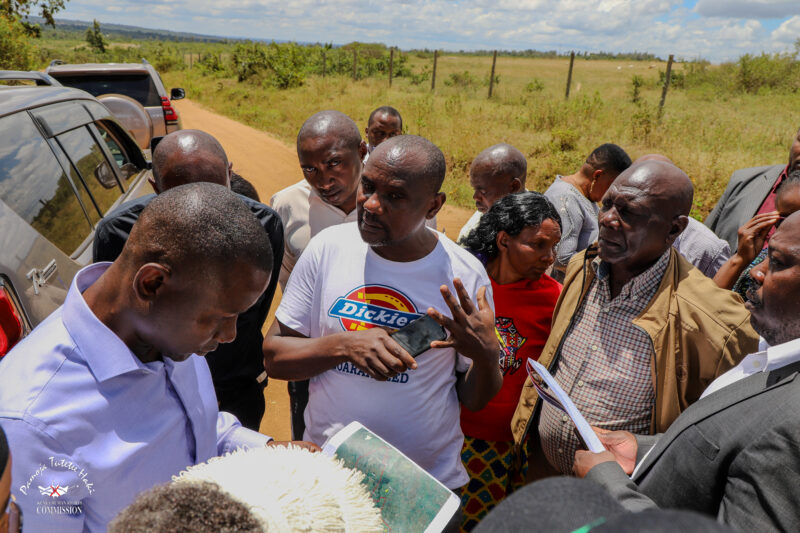
During the factfinding mission, NLC observed firsthand how descendants of the original farming communities live on their land as squatters under the whims of Kakuzi. The company condemned them to rocky, hilly, and infertile terrain. Others were compelled into squatter settlements and labour camps, while a significant number remained internally displaced persons both within and outside the jurisdiction of Kakuzi.
The parcels currently occupied by Kakuzi and in contention are LR10731 and LR11674. Out of 32,000 acres Kakuzi controls, the communities, totaling about 6,200 individuals, demand around 16,000 acres—12,000 from LR10731 and the remainder from LR11674.
On March 14, NLC visited the following land parcels: LR10731/3, LR10731/4, and LR10731/5. Other locations included Ithanga Phase Five, Kakuzi Primary School, Kasioni Dam, Miembeni, Kinyangi, and Kakuzi's macadamia factory and blueberry greenhouses.
In parcel 10731/3, spanning 700 acres, NLC learned that in 1989, Kakuzi gifted the land to its then-general manager, David John Munyae. However, it was revealed to NLC that this land was initially intended for settling squatters.
Kakuzi stated that, in 1970, it donated 250 acres in Ithanga Phase Five to settle 50 squatters. However, NLC discovered that Kakuzi had refused to relinquish the master title deed under LR10731. This prevented the community from processing their individual title deeds, denying them land ownership rights. This mirrored the predicament of Kakuzi Primary School, founded in 1958 and occupying 12 acres, and Kinyangi Primary School, established in 1949 and situated on 12 acres.
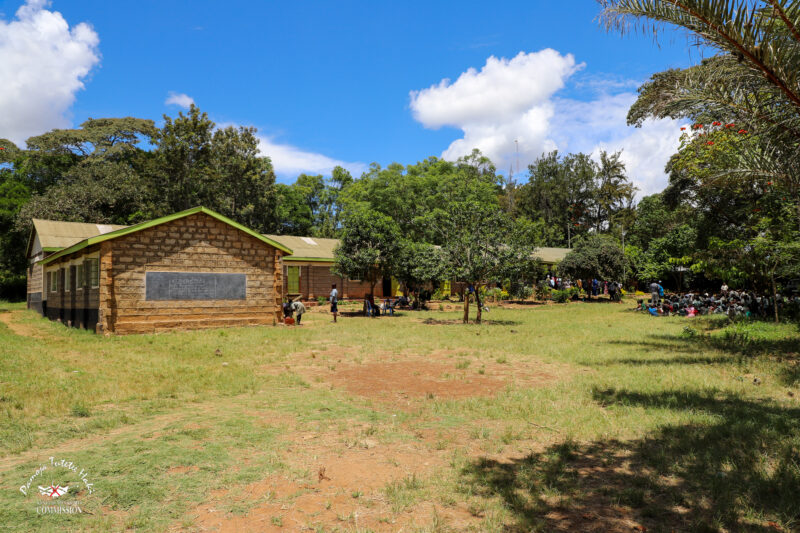
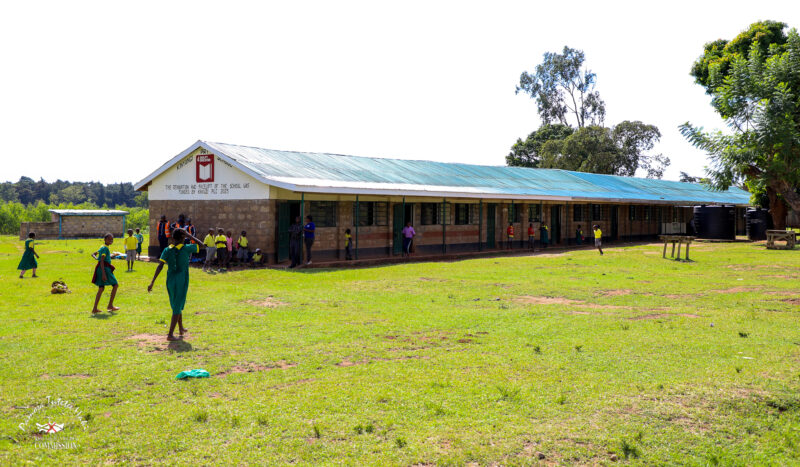
The plight extended beyond a lack of title deed for Kakuzi Primary School. Students here endure a daily trek of 16 kilometers between home and school. Why? When these students' parents resided near the school, Kakuzi reportedly evicted them, compelling them to settle in Kakuzi Hills, eight kilometers away. To reach the school, students must traverse forests and navigate fields infested with snakes and other hazardous wildlife.
In Kinyangi, public institutions on a 50-acre administrative land lack title deeds. These include a chief’s office, a hospital, and a Ministry of Transport and Public Works site. Additionally, the Kinyangi Trading Center, covering five acres; the Kinyangi market, also under five acres; and three churches totaling 15 acres, similarly lack title deeds. How a private company donated land to government institutions and won’t release title deeds to them remains most baffling.
Areas yet to be visited
Areas yet to be visited under LR10731 include Kituamba-Kaloleni, where Kakuzi allegedly orchestrated a brutal eviction in December 1989, torching houses, maiming people, and destroying crops.
Also awaiting inspection are the Kituamba police station, erected in 1948, the Kituamba water supply station, constructed in 1976, and the New Nginye Dam—hailed as one of the largest in East and Central Africa—claimed by the Kaloleni and Kinyangi communities.
Should NLC proceed to Kakuzi Hills, the commission will witness firsthand how communities inhabit condemned land. Residents reported that Kakuzi coerced them onto the hills following their eviction from more fertile land downslope.
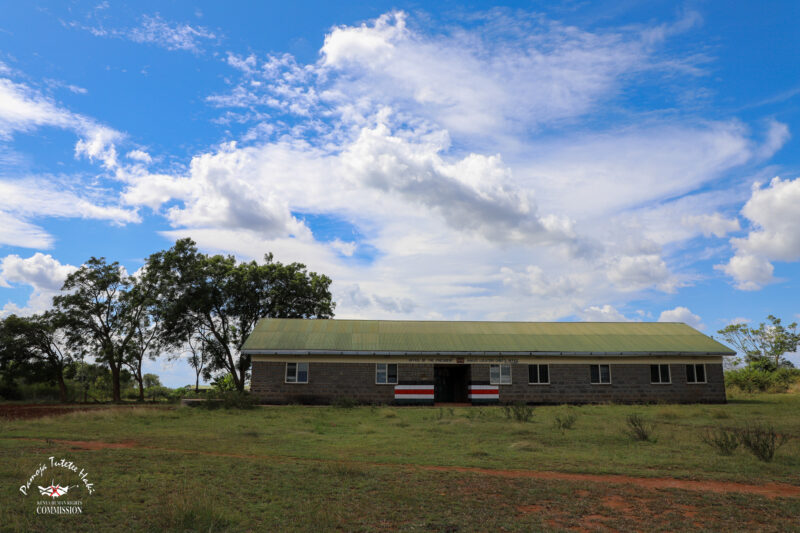
In Kitito, Kitito Boys' and Girls' Secondary Schools, established in 1968, lack title deeds for the 25 acres of land they occupy. Similarly, Kitito Primary School, built in 1932 and covering 12 acres, also lacks a title deed. On September 2, 2016, these schools gained attention when another instance of violence by Kakuzi guards was captured on camera. Pupils protesting an alleged land-grabbing attempt on their school grounds were met with violence from Kakuzi guards, with police officers also involved. Video footage showed officers charging at children and assaulting journalists.
The most recent violent evictions occurred in Milimani-Kakuzi Hills, reportedly under the supervision of former Kakuzi general manager David John Munyae. When the NLC visits, it will witness the aftermath of the July 1999 brutality, which left Gaichanjiru village in ruins.
Further, Kakuzi is accused of restricting public access to rural road number 2315.
In 2019, the NLC ordered that Kakuzi's land leases not be renewed until all grievances related to historical land injustices are resolved. The NLC said current leases should revert to 99 years from 999. However, the Environment and Lands Court in Nairobi overturned this order last year.
https://youtu.be/J7mvQmyYujA
Demands
KHRC and Ndula Resource Center urge NLC to accelerate its hearings to resolve the longstanding historical land injustices suffered by Murang’a communities. Additionally, both organizations demand that Kakuzi resettles all squatters and surrenders the master title deed to enable communities to process their title deeds. We also call for the unfettered and unconditional opening of all public roads that remain closed by Kakuzi.
KHRC, Elimu Bora file case to audit 2023 KCPE and KCSE results
The Kenya Human Rights Commission (KHRC) and Elimu Bora Working Group (EBWG) have sued to stop national examinations until the 2023 KCPE and KCSE results are forensically audited.
KHRC and EBWG want the Kenya National Examination Council (KNEC) and Education Cabinet Secretary (CS) to do this audit and publicize the findings.
Widespread irregularities in last year's KCPE and KCSE results have triggered this suit.
KNEC released KCPE results on November 23, and candidates started receiving conflicting grades.
On November 25, KNEC acknowledged these irregularities. However, it did nothing to correct the anomalies, the petitioners say.
"KNEC's handling and/or release of the KCPE examinations 2023 results cast a shadow of doubt, and/or created uncertainty amongst the general public, on the ability (or otherwise capability) of KNEC to discharge the respective mandate of its office as spelt out in the law and the Constitution," the petitioners say.
On December 8, KHRC and EBWG made an access to information request to KNEC. They sought:
- KNEC policy and guidelines on marking, award of marks and moderation process.
- KNEC examinations guidelines and regulations.
- KNEC policy and guidelines on compiling, verifying, reviewing and reporting examination results.
- KNEC service charter.
- A detailed audit of the examination process.
- Statements and reports on the last review of any subsisting policies and guidelines stated herein.
- Statements and reports on public participation and stakeholder input in formulating subsisting policies and guidelines.
The petitioners believe that the requested information is crucial in preventing future irregularities in the marking and releasing of national examination results. KNEC, however, did not respond, even when the Ombudsman intervened.
Currently, the KNEC's grading process is unclear. Reports indicate that KNEC provides markers with predetermined targets, pushing them to assess a high volume of papers, a practice that may compromise the quality of results.
Additionally, the conditions under which markers are accommodated during the marking process remain unclear, potentially impacting their mental well-being.
The lack of such clarity and transparency makes the process of grading opaque and KNEC unaccountable.
As such, the petitioners say the forensic audit should include the process of marking, award of marks, moderation process, compilation, verification, and review of the results.
According to the case, KNEC and Education CS have 90 days to complete the audit should the court rule in the petitioners' favor.
Suppose the court compels KNEC and Education CS to do the audit and fail. In that case, the petitioners want an order prohibiting them from "setting and conducting any KCSE examinations, including issuing KCSE examinations results and certificates".
Read the petition here.
